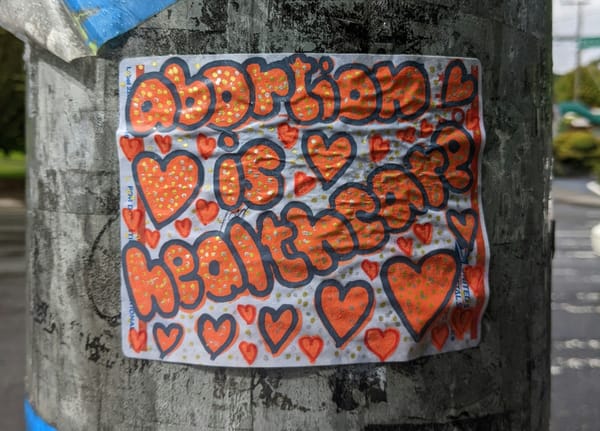First Public Testimony On Vouchers In The Texas House
Nearly a full day passed after the Public Education Committee started the first public hearing on the massive voucher bill

At around 6:25 a.m. on Wednesday, March 12, Jennifer Kost finally got to speak.
Wearing glasses, dressed in a burnt orange jacket wrapped around a black shirt and wearing black slacks and her long hair wrapped tightly into a bun, she patiently waited for her turn.
It was 22 hours and 30 minutes since the 15-member House Public Education Committee convened to debate House Bill 3, the school voucher bill by Chairman Brad Buckley (R-Killeen).
While many witnesses for and against the bill left before they were called, Cost stayed. She reminded them it was not the first time.
“Good news. I’m here. It’s the end,” she said sounding giddy and exasperated. The mother of a public school student, school volunteer and Christian was also, she noted, the last to testify at the previous week’s hearing on House Bill 2, the public school finance bill.
Raising her left hand with an annotated copy of a 35-page bill, she demanded the committee members oppose it.
“In my opinion, spending taxpayer dollars to send students to private schools is bad policy fiscally and ethically especially since the public schools that serve five million students are underfunded. I ask you to guard against this new entitlement and do not pass it out of committee,” she said.
But with a pro-voucher Republican majority on the committee, the backing of Gov. Greg Abbott and Lt. Gov. Dan Patrick and, for the first time, enough members in the House, its passage seems inevitable.
Historically a coalition of rural Republicans and Democrats killed any funding for vouchers, which Abbott has long made a priority despite little appetite among Texans of both parties.
Last year, Abbott spent millions to elect pro-voucher Republicans in primaries against anti-voucher incumbents and candidates, mainly from Pennsylvania billionaire and voucher supporter Jeff Yass. Of the 15 candidates he backed against incumbents, 8 won.
Two of those new members, Reps. Alan Schoolcraft (R-McQueeney) and Helen Kerwin (R-Cleburne), sit on the Public Education Committee. Kerwin also happens to be the mother of Department of Agriculture Secretary Brooke Rollins.
As written, the bill creates four priority categories: families with students at or below 500 percent of the federal poverty level, followed by families at or below 200% of the poverty level, families between 200% and 500% of the poverty level, and finally families at or above 500% of the poverty level.
It also comes with a $5 billion price tag over the next five years.
“My intent is to provide families with the opportunity to choose the best possible educational setting for their child,” said Chairman Buckley. “I believe House Bill 3 provides this choice while prioritizing Texas' most high-needs and vulnerable students.”
Democrats, who are unified in their opposition to vouchers and little else, are outnumbered nine to six on the committee. But they did not back down, at point sounding less like the diminishing minority party and more as if Bernie Sanders was in the room.
Leading on the fiery charge were Reps. James Talarico and Gina Hinojosa, both of Austin. Hinojosa is one of the most progressive members of the Texas House. Talarico is mostly mild-mannered, though aggressive when it comes to public education.
He hammered Buckley on the fourth category of recipients, claiming that billionaires would benefit.
“We’re going to run through priority one, priority two and priority three, and the majority of these voucher users will be priority four, who are a lot wealthier than other Texans and already have their kids in private schools,” said Talarico. “Couldn’t we cap the income meaning millionaires and billionaires couldn’t participate?”
“We can do whatever we want. But the reality is you need a universal program that’s prioritized in a way that meets the needs of the most vulnerable,” Buckley replied.
“You said we have to prioritize and give access to low-income kids. But in the same breath, you said we can’t stop millionaires and billionaires from participating. Why can’t we cap the income to prevent them from participating?” Talarico shot back.
“The inference you’re not wealthy, that you can’t access these problems, that somehow lower-income families will not apply is not true,” Buckley, already getting visibly frustrated, said. “We have public schools that are wealthy and others that aren’t. The fact is there will always be rich people who go to public schools.”
Nationwide, school voucher bills typically partner with third-party vendors called “certified educational assistance organizations,” to manage the application process between the parent and school. The bill just doesn’t benefit vendors, however. It would also allow the organizations to accept anonymous gifts to assist with financing.
“I think [this] sets us up for bribes and gifts,” said Hinojosa.
It was another gotcha moment to get him on the record about the bill’s intent and to set up a battle if and when it heads to the full chamber for debate.
Plenty of committees have hotheads from both parties who typically take every attack personally. Rep. Terri Leo-Wilson (R-Galveston) and Schoolcraft are no exception.
“How many billionaires are there in this state? What? Less than half a percent? And even less have kids in public schools. I resent that this is for billionaires and millionaires,” said Wilson. “This is not for wealthy parents but all parents.”
Schoolcraft said he too was bothered by the vilification of wealthy supporters of vouchers.
He served in the House from 1981-1983 before toppling former Rep. Kyle Kacal in a runoff. He recalled being on this same committee when he previously served.
“I was here in the eighties. We were fixing education then. We can keep trying and need to keep trying. [With this bill] we are creating a laboratory for this slightly less regulated system that could be copied by the public school system,” he added. “You can disagree with them but to say they’re only into making money is unconscionable.”
Whenever a member from either party is pressed by Rep. John Bryant, the Dallas Democrat, a room goes silent.
Buckley became visibly frustrated with his questions.
“You don’t think many people will take advantage of this voucher?” he asked Buckley.
“I think as many parents that feel like it's the best option for their kids will seek to take –– ” Buckley replied before Bryant spoke over him.
“That’s not talking in the same terms of what I’m asking,” he said. “If enrollment is flat, then we’ll have less kids in public schools?”
Buckley agreed.
“You've seen an ebb and flow of birth rates and those are those are things we cannot foresee at this point,” he replied.
“I just asked for a simple affirmation that you're attempting to give students the ability to leave public schools and go to private schools and you're assuming that they are going to do that, which means an assumption that we're going to reduce the public school population,” Bryant bluntly replied.
“I'm not assuming parents will do anything. I'm just offering parents a choice. I guess
I have more faith in our public schools than you do,” Buckley snapped.
Bryant proceeded to discuss the Teachers Retirement System, previous versions of the bill, the history of Texas public schools and a warning to his conservative colleagues: this bill could open a door to Satanic schools.
“I’ll do some Googling,” Buckley replied.
“Well, I'm sure you're going to find one somewhere in the country and I can guarantee you one of them is going to open if you pass this bill, don't you think?” Bryant asked.
“I don’t think there’s a demand for that,” Buckley replied.
Bryant chuckled and had no further questions.
House Bill 3 awaits a committee vote.






